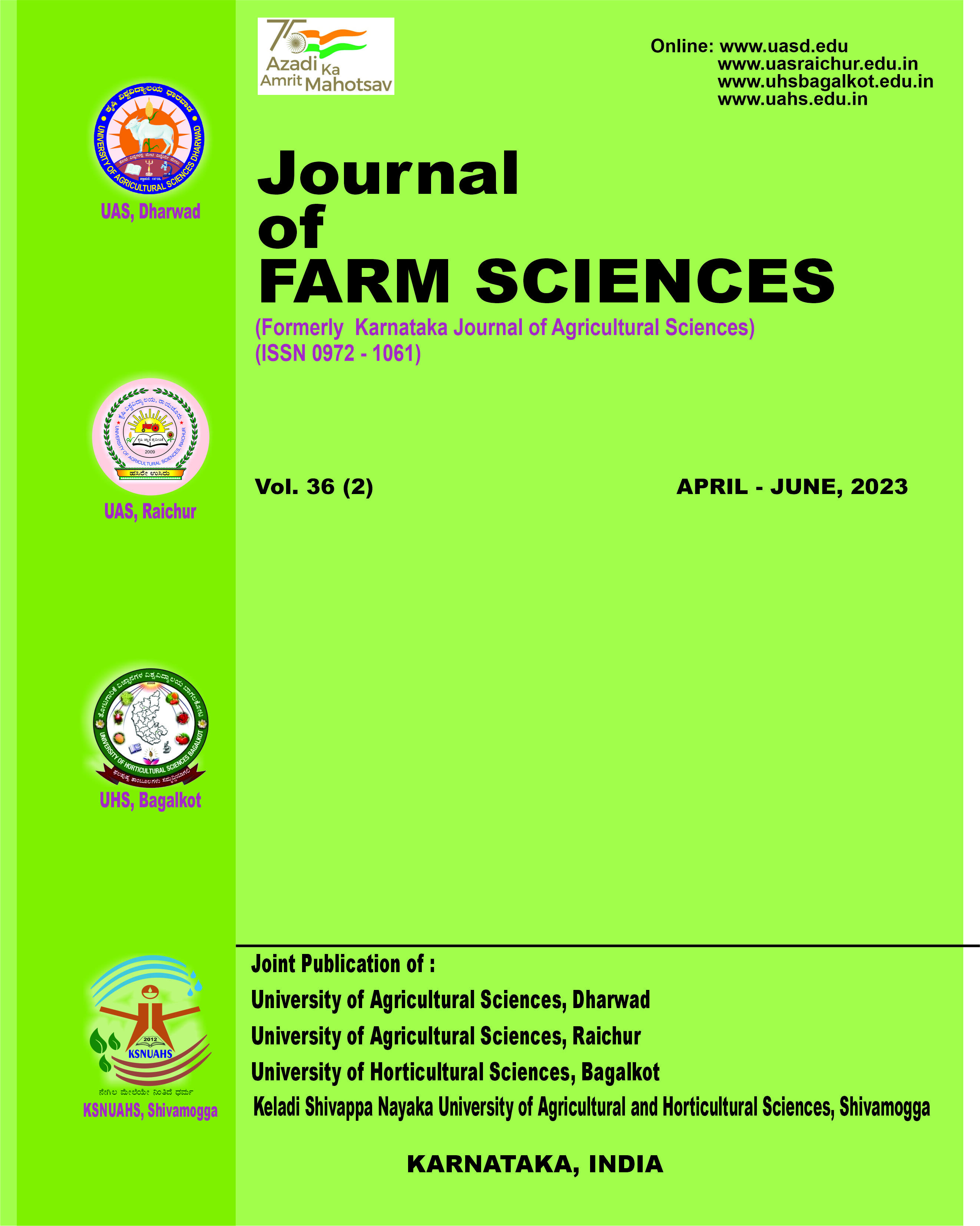A study on influencing factors and constraints for natural farming in Belagavi District
Abstract
The present study was conducted to determine the factors influencing adoption and non-adoption of natural farming and constraints in practicing natural farming in the study area. The study was conducted during the agricultural year 2023-24. The multi-stage purposive random sampling technique was adopted to select natural farming farmers in the study district. The study was purely based on primary data related to both factors influencing adoption, non-adoption and production constraints in natural farming, were identified based on the opinion survey from 60 sample respondents. For determination of factors descriptive statistics, was used in this method farmers were asked to rank them based on the frequency of occurrence and Garett’s ranking technique was used to evaluate the problems encountered by respondents in the study area. In this method, the farmers were asked to rank the given constraint according to the magnitude of the problem. In Belagavi district, in adoption of natural farming low cost, improved yields, increase in soil fertility, assured premium price, small holdings, benefits from government schemes and less credit requirement were the major factors and high labour requirement, initial low yields, no assured market, laborious and costly certification process, lack of awareness, no standardized procedure for preparation of inputs and pest and disease control were difficult were the major nonadoption factors. The major production constraints in practicing natural farming were non-availability of specialized market followed by labour intensive, non-remunerative prices for produce, low yields in initial level, lack of adequate information, difficulty in control of pest and diseases and limited and irregular power supply.


